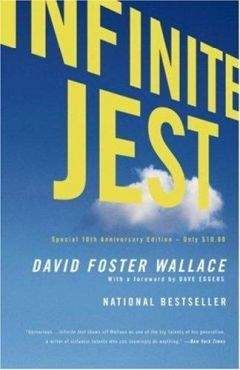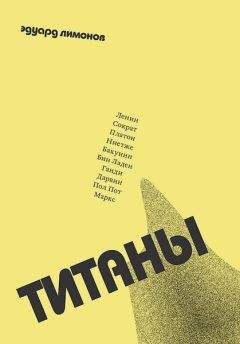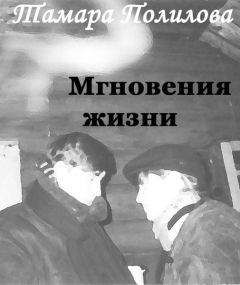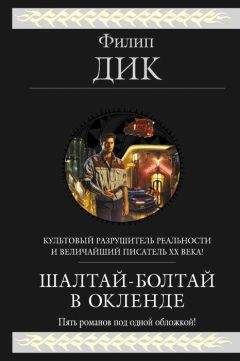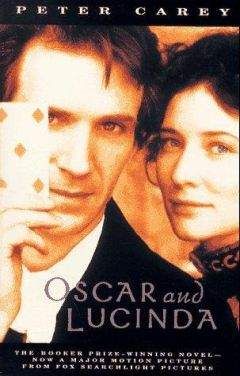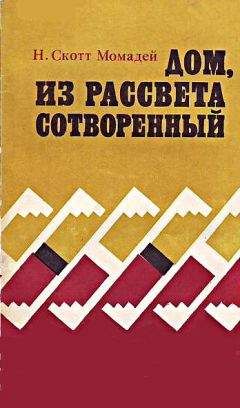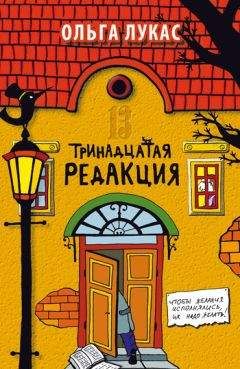Lars Iyer - Spurious

Скачивание начинается... Если скачивание не началось автоматически, пожалуйста нажмите на эту ссылку.
Жалоба
Напишите нам, и мы в срочном порядке примем меры.
Описание книги "Spurious"
Описание и краткое содержание "Spurious" читать бесплатно онлайн.
In a raucous debut that summons up Britain's fabled Goon Squad comedies, writer and philosopher Lars Iyer tells the story of someone very like himself with a "slightly more successful" friend and their journeys in search of more palatable literary conferences and better gin. One reason for their journeys: the narrator's home is slowly being taken over by a fungus that no one seems to know what to do about.
Before it completely swallows his house, the narrator feels compelled to solve some major philosophical questions (such as "Why?") and the meaning of his urge to write, as well as the source of the fungus… before it is too late. Or, he has to move.
But won’t it have been too late? Won’t the page have already been turned? But perhaps that’s what it means: the idea can burn only for those who cannot see it, who have already gone under. It’s on the other side of the mirror, although all they can see are their own stupid faces.
And what do we see, in the reflective surface of the train windows? Whose faces are those behind the glass? — ‘My God, look at us’, says W. ‘Look what we’ve become’.
The water taxi to Mount Batten. We’re in choppy water, but sit out nevertheless on the exposed part of the deck. — ‘Poseidon must be angry’, says W. as the surf splashes over us. W.’s learning Greek again. Is it the fifth time he’s begun? The sixth? It’s the aorist that defeats him, he says. Every time.
It’s choppy! — ‘We should libate the sea’, says W. Then he asks me if I know why the sea is salty. It’s because the mountains are salty and the sea is full of broken up mountains, he says.
It’s also full of ozone, of course. That’s what cheers you up when you’re near the sea, W. says, the ozone that choppy water releases into the air.
Have we failed? W. is certain: we are complete failures. We should be drowned like kittens, he says, for the little we’ve achieved. But what chance did we have? I ask him. What could we have done, under the circumstances? That’s always my question, W. says. — ‘You’re always looking for excuses. It’s your Hindu fatalism’.
W. says my entire worldview is organised so that I never have to take responsibility for anything, even my supposed Hinduism. W. was brought up with the idea of eternal damnation, he says, and the thought of it still makes him shiver. Hindus are immune, W. says. I should try living as a Catholic and then I’d see (W.’s family were converts, of course). And as a Jew (W. is Jewish by bloodline). — ‘It’s the guilt that’s worst’, says W. ‘The sense you can never measure up’.
‘Detachment, that’s what you Hindus have to achieve to escape the wheel of rebirth, isn’t it?’, W. says. Moksha: the cessation of desire. It makes sense to him, W. says. Look at my flat, for one thing. It’s disgusting. Do I desire to clean it up? No. Do I desire to deal with the damp? Not really.
‘It’s a kind of test for you, isn’t it, your damp?’ W. says. All I have to do is to desire not to change it, W. says. All I would have to say is, The damp is eternal; I accept that now. That would be moksha, wouldn’t it? Ah, if only it were as simple for him, W. says.
‘This is how proper people think’, says W. in the beer garden in Turnchapel, his arms held behind his back and his head raised. ‘Do I look as though I’m having lofty thoughts?’
What thoughts has he had? I read from the back of his notebook. The messianic and the apocalyptic, it says, the ‘and’ underlined. Pathos, it says. Blood in the chinks between the stones of the law — Kafka, it says. Groessen = dimension, it says. Capitalism = paganism. And then, The real future is waiting to happen beneath the marketing of the future.
And then, a little further on: We have to live two lives, one turned to the world and to the horror of the world, and the other turned to our friends. And still further on, Eternity in time. And then, Kafka — thin, Brod — fat.
There’s a list of ingredients, too: juniper (Italy), lemon and orange peel (Spain), orris root (Italy), Angelica root (Low Countries), cardamom pods (Sri Lanka), coriander seeds (Russia). And some tasting records: Warm spiciness. Peppery notes. Earthiness and sweetness. That was from the visit of the Chief Distiller of Plymouth Gin, W. says.
W. cherishes my special love for Turnchapel. I become gentler when I’m there, he notes, kinder. He likes my tender side. In another life, I could have lived here, imagine … We muse wistfully on what I might have been like. — ‘A better person’, W. thinks, ‘taller, with some nobility of character’.
In the staff dining room, framed portraits of VCs in their robes all around us, W. confides that he thinks he’s on the brink of an idea. He’s never had an idea before, so he doesn’t quite know what it’s like. But he thinks this is it: he’s on the brink of an idea; a new horizon is opening before him. Have I ever had an idea? he asks. Of course not, he says, why is he asking? Have I ever thought I was on the brink of an idea, and that people would haul me up on their shoulders and carry me around, cheering?
‘Of course you never thought you’d have an idea for a moment, did you?’, W. says. ‘You actually repel ideas and intelligent thought’, W. says. ‘Never for a moment would you be capable of thinking’, W. says. ‘Not for one moment!’
When he was young, W. was sure that one day, if he worked hard enough, he’d have an idea. He lodged in an attic room in which there was only a bed and a work table. A bed and a desk, W. emphasises. He rarely left it, his attic room, W. says. He worked night and day. Reading and writing were all that mattered.
What happened? Ah, we know what happened! He’s told me a million times! He’s told everyone! He discovered drinking, says W., and smoking! He came late to both, but when he discovered drinking and smoking that was it! But no doubt he began drinking and smoking from a sense of disappointment, from the knowledge he’d never have an idea and that there was no point in going on, he says. Yes, that’s what happened, W. says: disappointment, and then drinking (and smoking). Then there was the apocalypse, which made things even worse.
Since then, he’s lived in the ruins of his impression of himself as someone capable of having ideas. He’s felt ill for years, says W., which, on top of his drinking and general disappointment may have prevented him from having an idea (until now), or be the result of him not having an idea (until now). But W. thinks he may be at the beginnings of an idea. At its rudiments, he says.
W. points out a strip of trees from the window, which looks towards Plymouth and the sea. It’s ancient woodland, he tells me. That’s all that’s left of it, that strip, he says, which runs right up to Dartmoor. There’s a species of tree, unique to the area, that grows there: the Plym pear, he says. You can’t eat the pears, though, they’re like crabapples.
Why has he brought me up here? Why this vista from the staffroom window all the way towards the glistening sea? — ‘Infinite judgement’, he says, mysteriously. ‘That’s my idea. Infinite — judgement. It’s from Cohen’, he says. ‘Well, it’s from Cohen’s reading of Kant’.
W. has been sending me his notes on Cohen for months. He barely understands a word of Cohen, W. has always admitted. In fact, he is singularly unqualified to read Cohen, lacking any understanding of mathematics, which is essential, or any real religious feeling.
Infinite judgement. Whatever does it mean? W.’s not sure, but nevertheless he feels he’s on to something. He’s not sure, he says, whether he has made a genuine breakthrough, or whether it is all nonsense. Is he at the summit of his creativity or the peak of his idiocy?
At the bus-stop by the hospital, W. shows me the dedication of the book he’s recently added to his collection. To my Rabbi … It’s dedicated to his Rabbi, says W., wonderingly. W. has always wished he had a Rabbi to whom to dedicate his books. Or rather, he now knows that that is what he should have wished for all along.
A Rabbi! He would have been part of something. He would have had a sense of belonging. Despite his interest in Jewish topics, W. is not really a Jew. He’s not even a Catholic, not really, W. says. He’s not capable of believing in anything, not anymore. There’s no-one more boring than an atheist, W. sighs.
Of course he looks very Jewish, W. says, especially since he’s grown his hair long. But however Talmudic he appears (and he has looked increasingly Talmudic in recent years, with his beard and long ringlets), there is the terrible reality of his non-belief.
As we cross Mutley Plain, looking out of the window of the bus, W. speaks of his obsession with the great Hungarian plain. Béla Tarr spent six months visiting every house and every pub on the plain, W. notes. He said he discovered mud, rain and the infinite, in that order. Mud, rain and the infinite: nothing to W. is more moving than those words.
W. wonders whether we too have discovered the infinite in our own way. Our incessant chatter. Our incessant feeling of utter failure. Perhaps we live on our own version of the plain, W. muses. Am I the plain on which he is lost, or vice versa? But perhaps the plain is the friendship between us on which we are both lost, he says.
modemport's original commercial release April 02 2011
Подписывайтесь на наши страницы в социальных сетях.
Будьте в курсе последних книжных новинок, комментируйте, обсуждайте. Мы ждём Вас!
Похожие книги на "Spurious"
Книги похожие на "Spurious" читать онлайн или скачать бесплатно полные версии.
Мы рекомендуем Вам зарегистрироваться либо войти на сайт под своим именем.
Отзывы о "Lars Iyer - Spurious"
Отзывы читателей о книге "Spurious", комментарии и мнения людей о произведении.





